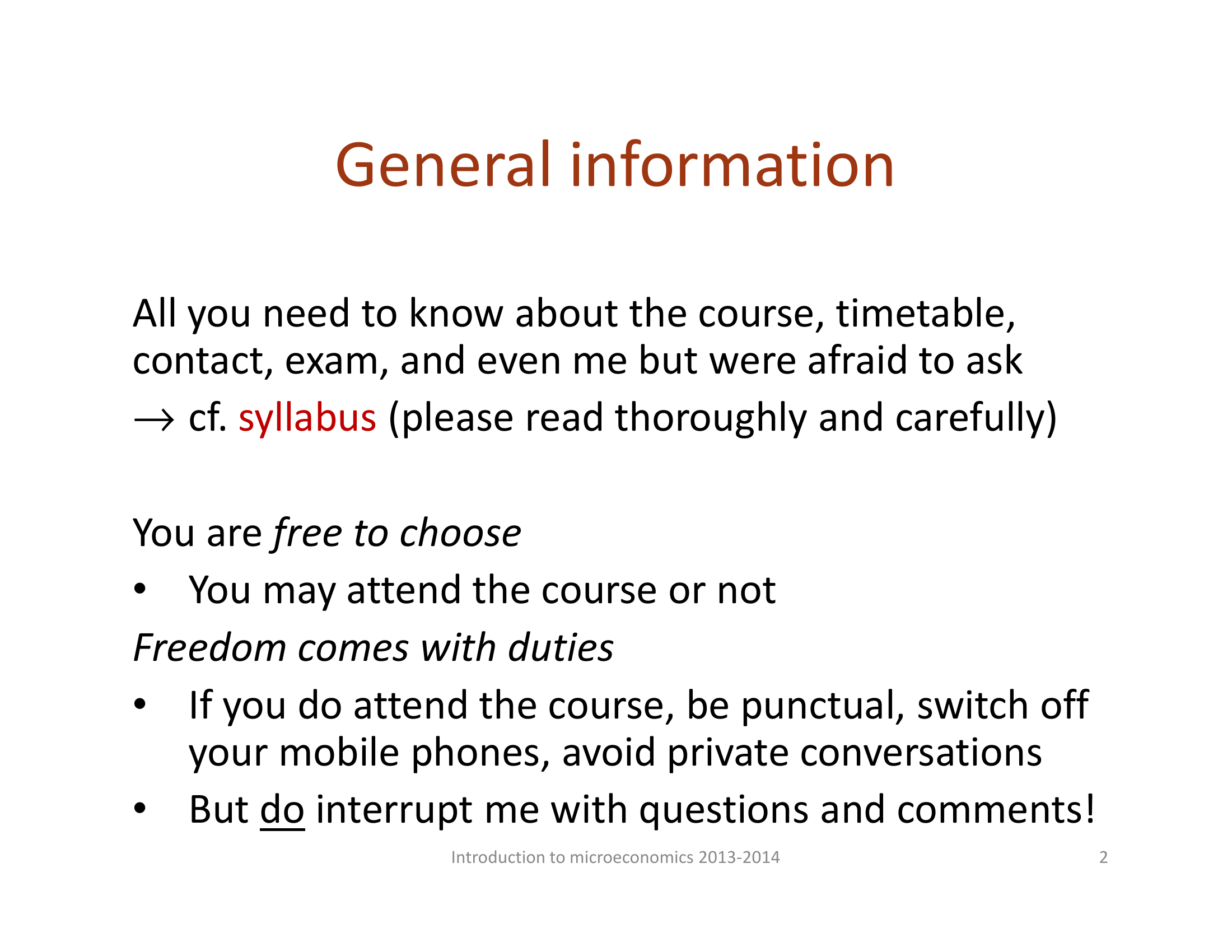intruction UNIGE
Publié le 06/01/2014

Extrait du document
«
General information
Introduction to microeconomics 2013-20142
All you need to know about the course, timetable,
contact, exam, and even me but were afraid to ask →cf.
syllabus
(please read thoroughly and carefully)
You are free to choose
• You may attend the course or not
Freedom comes with duties • If you do attend the course, be punctual, switch of f
your mobile phones, avoid private conversations
• But do interrupt me with questions and comments!.
»
↓↓↓ APERÇU DU DOCUMENT ↓↓↓


